Mental Health Awareness Month - What to look for in your loved ones.
- May 31, 2025
- 11 min read
As some may know, May is Mental Health Awareness Month. It is the last day of May, so I figured I should write a piece to end the month with.
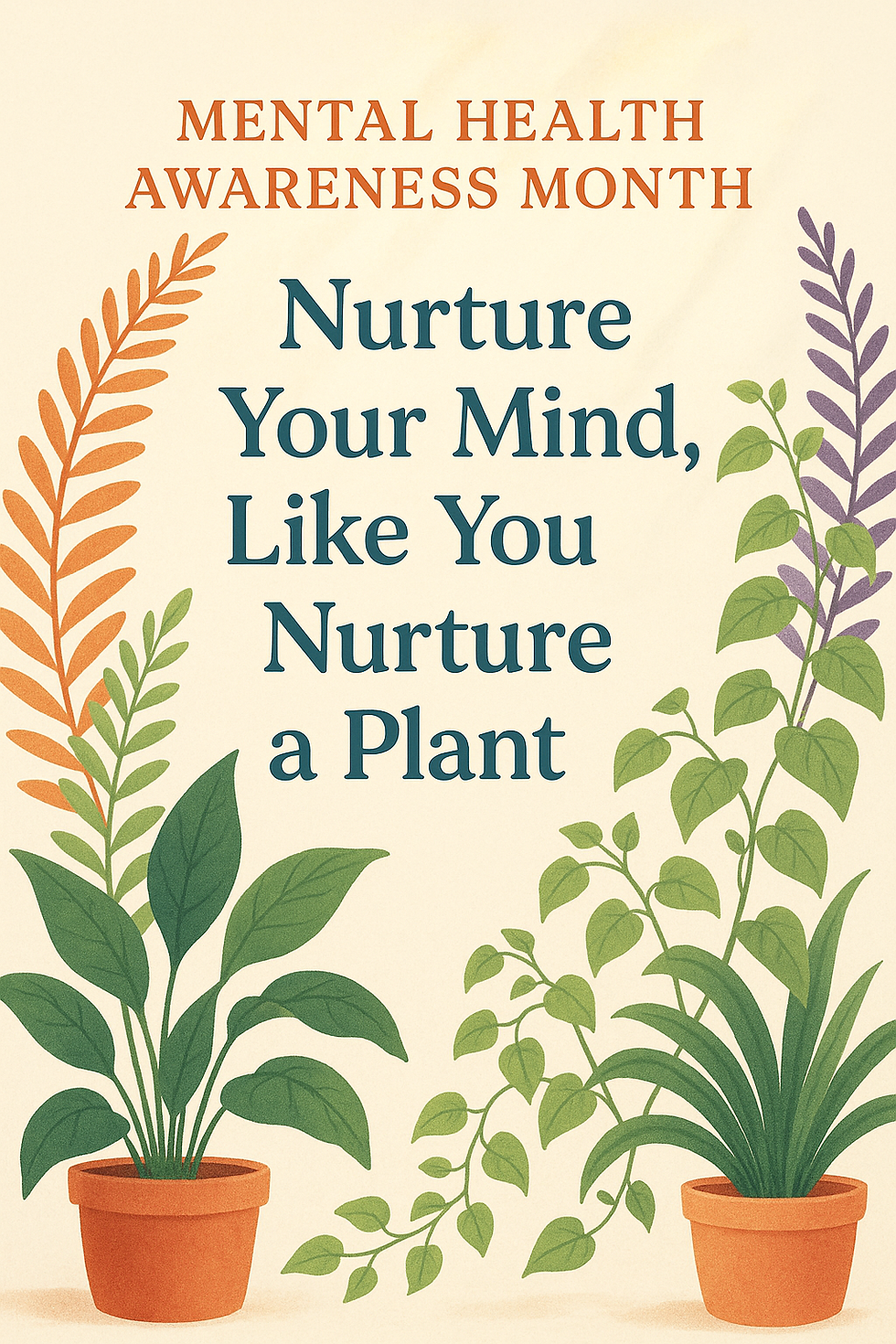
We should all know by now that mental health is just as important as physical health. Your mental health can actually impact your physical health. Therefore, it is extremely important to be aware of not only your own mental health but also your loved ones as well. Maybe you're aware of what to look for, or maybe not. Maybe you have a loved one whom you are quite worried about and are unsure of how to approach them or the situation. Well, let's talk about that.
When it comes to my own mental health, I have had MANY ups and downs. As someone with Borderline Personality Disorder, PTSD, and Generalized Anxiety Disorder, I sometimes struggle internally. Whenever I am feeling depressed, my biggest signs are sleeping more often (if I have the ability to do so), not talking as much as I usually do, self-isolation, and irritability. My signs are easier to see by those who know me best, but especially those whom I see every single day, like my boyfriend.

Oftentimes, he can tell something is wrong, but I refuse to talk about it and just pretend I am fine. After all I have been through, it is sometimes hard to admit when I need help, and I tend to bottle things up until I explode with emotion. I tend to take things out on others that I know are not going anywhere, such as my boyfriend, or my parents. Realistically, they could go somewhere, but over time, they have proven otherwise.
Other times, I might not really have huge signs that I am not okay inside, but there might be small ones. So, what in the world should we be looking for?
Key Signs of Depression:
Negative Outlook on Life (Pessimism)
Irritability/Anger
Increased Fatigue/Sleeping More or Sleeping Less
Changes in Appetite/Eating Habits: Eating More or Eating Less
Mood Swings
Rapid Weight Gain/Loss
Talking About Death/Suicide
Self-Isolation
Lower Self-Esteem
Negative Outlook on Life (Pessimism)
This could be a huge sign that someone is depressed, especially if that person used to have a positive outlook. We all know those people, the ones that we may refer to as "Karens", the ones who are never happy and always have something to complain about. Those people could quite possibly be acting that way because they are indeed miserable. They might be depressed. I am not saying that every person with a bad attitude is depressed, but some of those people might be. We never truly know what a person is going through. I know that I come across some people who we think are just downright mean or horrible people. But, what if they are going home every night to mental abuse, or they just lost someone close to them? There are endless possibilities as to what could be causing their attitude/behavior.
I want you to try to remember a time when you were really upset about something that happened in your life, and I want you to ask yourself something. I want you to ask yourself if, during that time, you honestly treated every single person with kindness that you came across. My guess is probably no. Because we all have bad days, we all go through hard times, and we are not always the best versions of ourselves.
So, what you might notice in a loved one is a switch in seeing things half full to half empty, or as seeing things in a positive light previously, and now seeing things in a negative light. That switch is a big indicator that something may be seriously wrong. Everything would be described as horrible or boring.
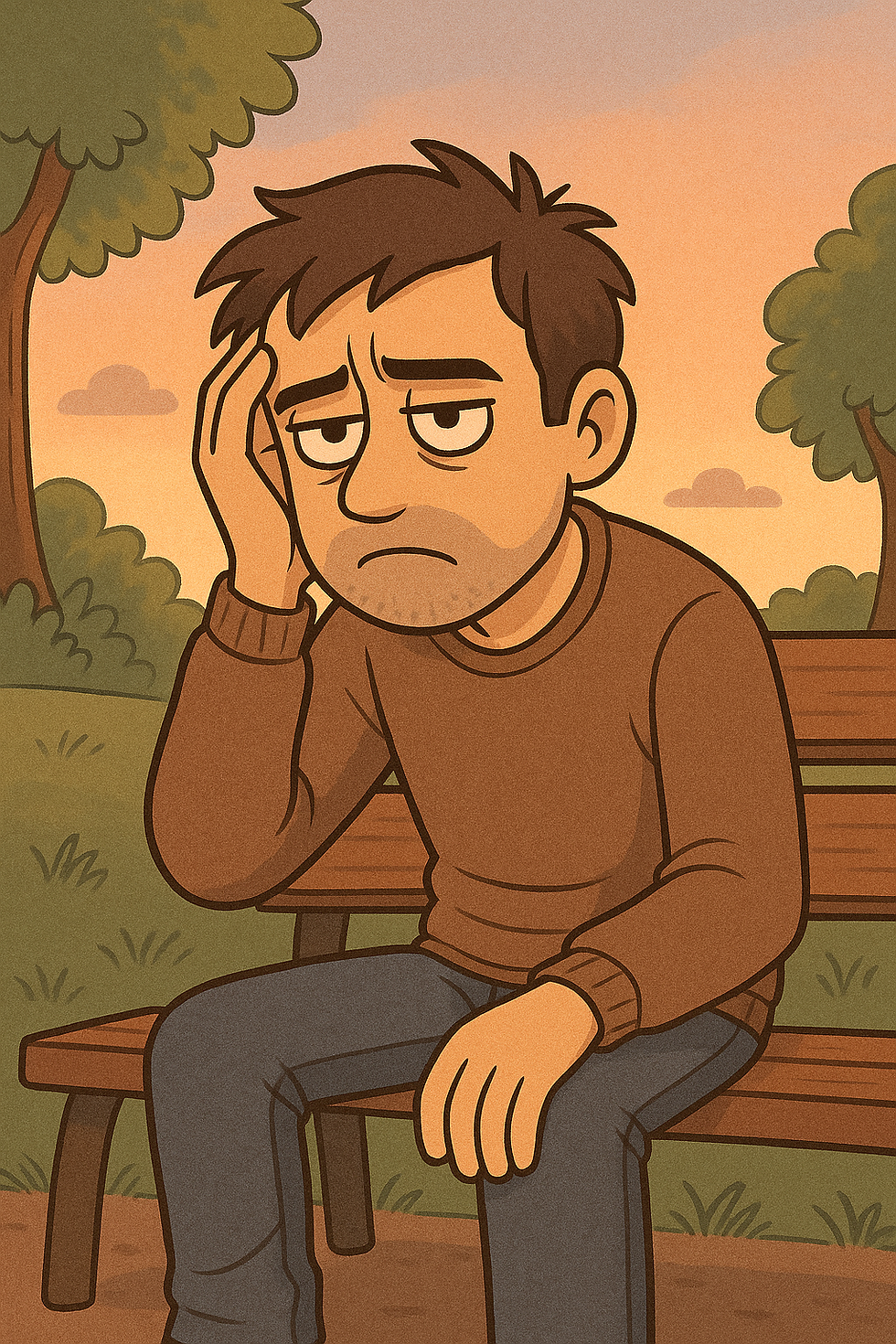
They may also say things like:
"All I do is mess everything up."
"Why should I even try? I'll just fail again."
"Things will never get better."
"I am too tired to deal with this."
"It's all my fault."
When I started therapy, my favorite words to use were never and always. I would say things like "I will never get better.", "I will always feel this way.". My therapist pointed this out to me, and I started to realize that I was adding a very permanent view to things that did not deserve it.
Irritability/Anger
This is one of my biggest signs that I am struggling. It is usually the most evident to my boyfriend, as he sees me on a daily basis. I tend to be more on edge and snappy in my responses, or fly off the handle, as they say, at something that doesn't deserve that large of a reaction. I will basically be downright miserable.
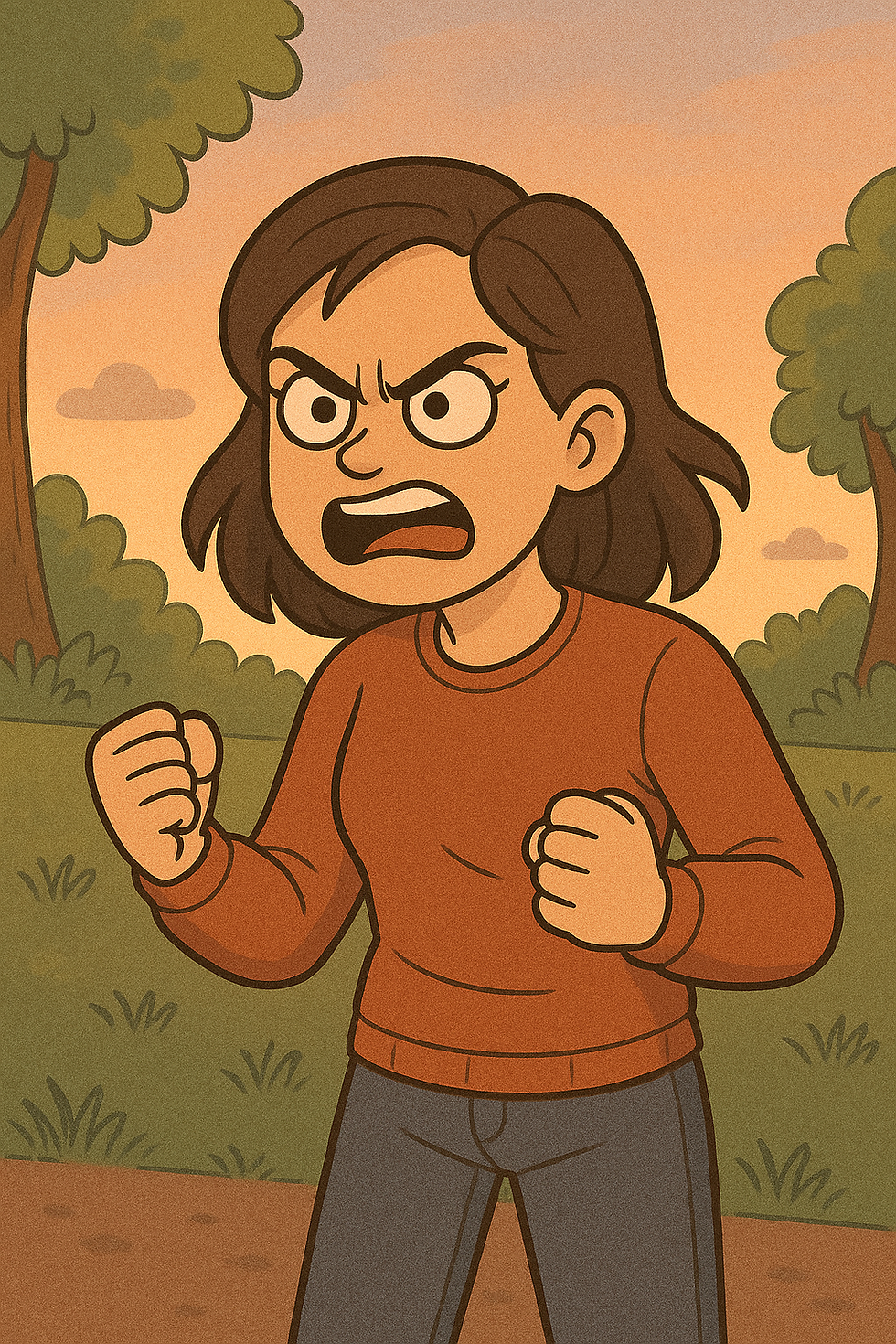
Every person is different, however, we all know when someone is irritable. Now, whether that person is just miserable because they didn't get a lot of sleep the night before and haven't had their coffee yet, or if they are depressed, are obviously two very different things. So, what we are looking for here are longer periods of irritability or anger. I would say maybe more than a few days. If it lasts a week, then we might be looking at something more serious than a lack of sleep or caffeine. So, if you notice this, this might be a sign that they are experiencing depression.
Increase Fatigue/Sleeping More or Sleeping Less.
Another big sign of depression is a change in sleep patterns. If a person seems to be sleeping more than usual, they could be experiencing depression. They could also just want to do nothing but lie in bed or on the couch. They might not see a point in getting out of bed or might feel more tired than usual. Remember when I said that our mental health can affect our physical health? This is one of those examples. Being depressed can actually cause you to feel more tired, usually in extreme ways, such as fatigue. Your body is telling you that you need to rest, when really, you are experiencing depression. I know that for me, I would sleep because when I was sleeping, I wasn't dealing with anything that was going on in life or in my head, so that was another reason that I would sleep more.
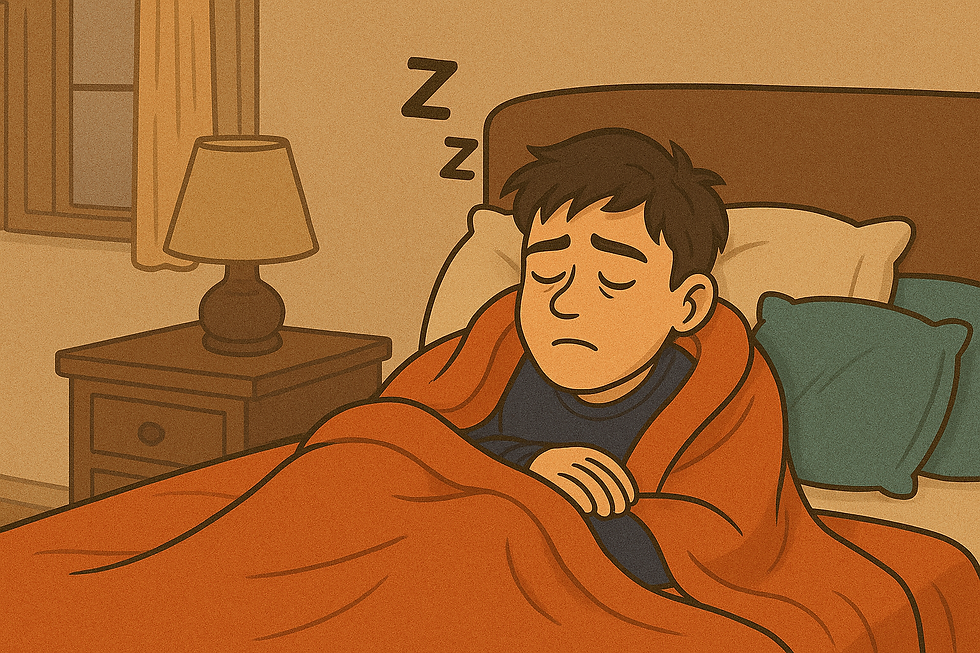
Although sleeping less is more commonly associated with anxiety, this could also be a sign of depression. Sometimes the person who is depressed will sit there and sulk in their thoughts and stay awake thinking about all the things going wrong in their life, causing them to sleep less. Now, I am not talking about a 30-minute difference, I am talking hours in difference. So, if you notice your loved one is sleeping more or less, this could be a sign they are depressed.
Changes in Appetite/Eating Habits: Eating More or Eating Less
This is yet again another sign that a person may be dealing with depression. There are many times in my life when I was struggling that I would go to either end of this spectrum. As some may know from my previous blogs, I have experienced eating disorders and an unhealthy relationship with food. There have been times when I starved myself in order to deal with how I felt about my body, or because I didn't have an appetite, or because I was so upset. There were also times that I ate and ate and ate in order to feel better. So, if you notice that a loved one has started to eat more or less than usual, this could be a sign of depression. Now, I am not talking about when they just don't get dessert when they usually do because they are on a diet or something small like that, I am talking about a noticeable difference. And this would generally be over a longer period of time.

Mood Swings
This one might seem kind of basic, but remember that sometimes we forget that those mood swings could indicate something more serious. This kind of goes along with my irritability and anger section. But this could also be moments of crying intensely, then incredibly happy. Rapid mood swings over an extended period of time may indicate depression, or a type of personality disorder such as Borderline Personality Disorder or Bipolar. Although depression is much more common than those disorders.
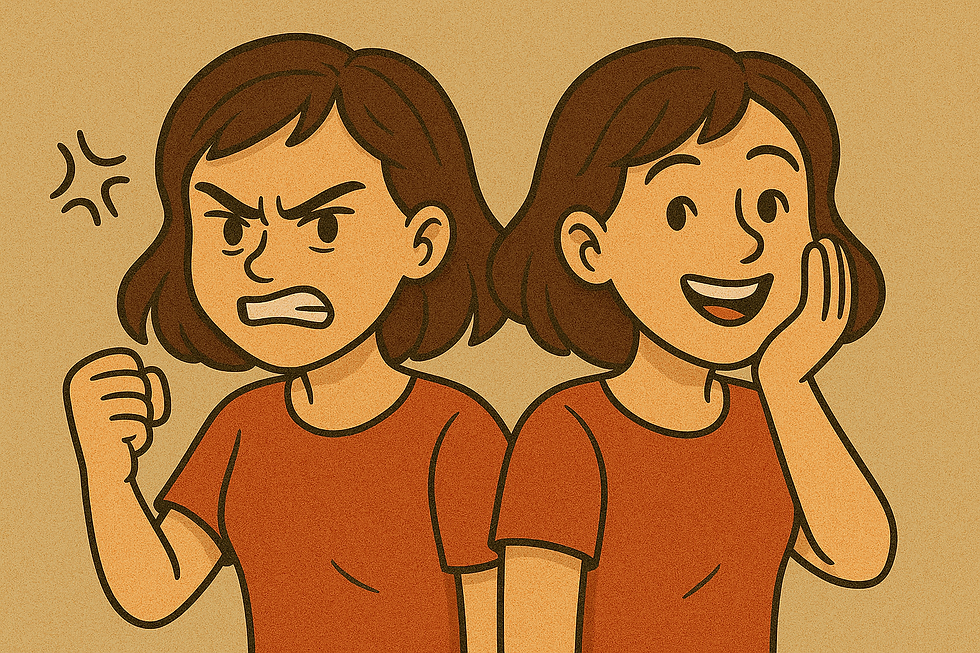
Rapid Weight Gain/Loss
This goes along with those eating habits we talked about earlier. If you do not know someone's eating habits, you might be able to notice a sudden change in their weight. This section is pretty straightforward.

Talking About Death/Suicide
This one seems kind of obvious, but I still feel it is important to discuss. Someone who is depressed might bring up death in conversation. They might say something about wondering what it is like to die, other people who have died, or just death in general. Although this does not always mean that the person is depressed. We all wonder about that age-old question of what happens when we die. Of course, everyone has their beliefs, but since we cannot stay dead for long periods of time, then become alive again, we do not have the answers.

Death can be scary to think about. I, for one, have never dealt well with death. I have experienced the death, or learning of the death of, people I care about, acquaintances of mine, and people whose death caused a huge hole in my heart. But at the end of the day, we know that death is final. It is the end of this life as we know it. I still do not do well with death. I am sure many of you don't as well. But, someone who is depressed is usually thinking a lot about it and feels that it is the only way to end their suffering or whatever it is they are dealing with. This is a permanent solution to a temporary problem, but when you have that mindset of suicide, it is hard to see it that way. And obviously, if someone comes out and says that they have been thinking about ending their life, this is a HUGE red flag, but we will talk about how to approach those situations later.
Self-Isolation
This is another big one that we might not always think about. This is a big sign for me when I am struggling. Sometimes I will isolate myself and not communicate with others. I might not want to see anyone or talk to anyone. I certainly do not go out of my way to do so either. I will also push away others who try to help me. This may seem different for everyone. But the bottom line is that the person will stick to themselves and themselves only, or display a major decrease in social behaviors. Some people are just not social, but when someone has a large shift from being social to being antisocial, this is a huge indicator that something is wrong.
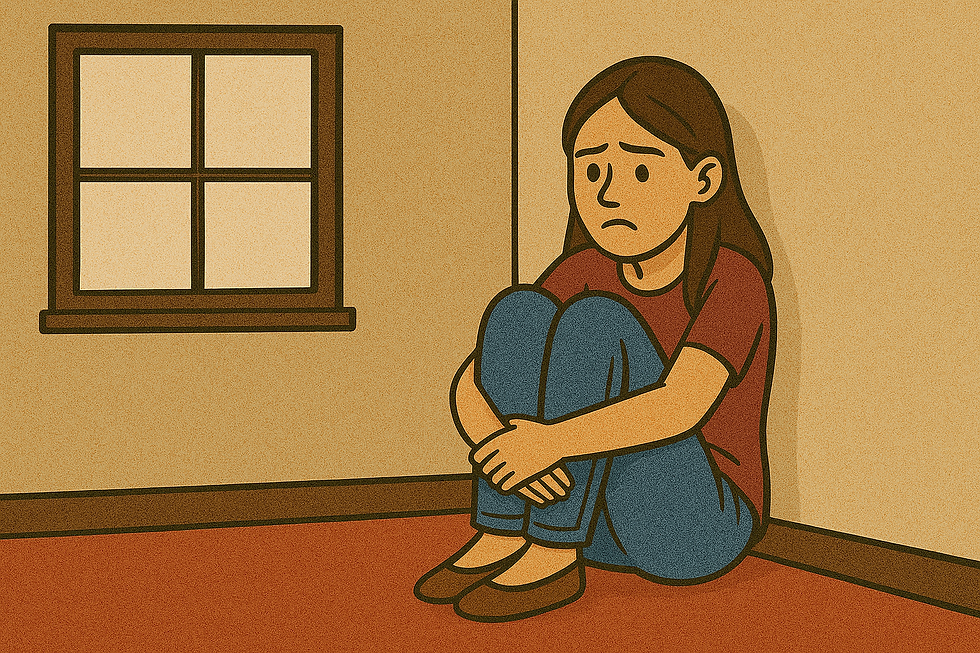
I, for one, am usually a social butterfly. I love talking to people, interacting with people, and being the center of attention. But when I am really struggling, I shut people out and go into a shell. I no longer seek out social interaction and mostly stick to myself.
Lower Self-Esteem
This one is kind of an obvious one. But if someone talks negatively about themselves, this could be an indicator that they are experiencing depression. I would say that most likely they are because someone who is happy is usually a little more confident. We all have our things we don't like about ourselves, but this would be taken to an extreme and constantly pointing those things out.

What can we do to help someone we think may be depressed?
My biggest piece of advice on this is just to reach out. Never approach the situation as, I think you're depressed and ask if they are. Be more gentle. Point out the things that you have noticed. If they are more irritable lately, then let them know that you have noticed that they seem to be a little bit on edge. Ask them if they are okay. If they say that they are okay, remind them that you are always here for them. It is also okay to remind them that it is okay not to be okay sometimes, that life is hard, and that it is okay to cry or be upset. Those things are natural. But let them know that you are concerned and that you care about them. A gentle approach is always best.

If they do offer that they are not okay, ask them why. Listen intently, do not just sit there and try to give them advice. As someone who has dealt with depression most of my life, when I am upset, I usually just want someone to listen and to tell me that everything is going to be okay.
And for goodness' sake, DO NOT compare your situations. It is not okay to try to tell someone that you have been through worse or know someone who has been through worse. How would you feel if someone did that to you? Probably not good. It is important to validate their feelings. You can say that you understand why they might be upset, that it is okay to be upset.
You could also ask them if they have thought about it, or are in therapy. The word therapy scares people and makes them think there might be something wrong with them or that they are crazy. But let's break that stigma because it is untrue. We all need help sometimes, because well, life is hard. Suggesting therapy is okay to do, but do not push them. Someone who is not ready for therapy will not be successful in therapy, at least not right away. Therapy is work, but it is so worth it to be able to develop coping skills and process all that life has to throw at you.
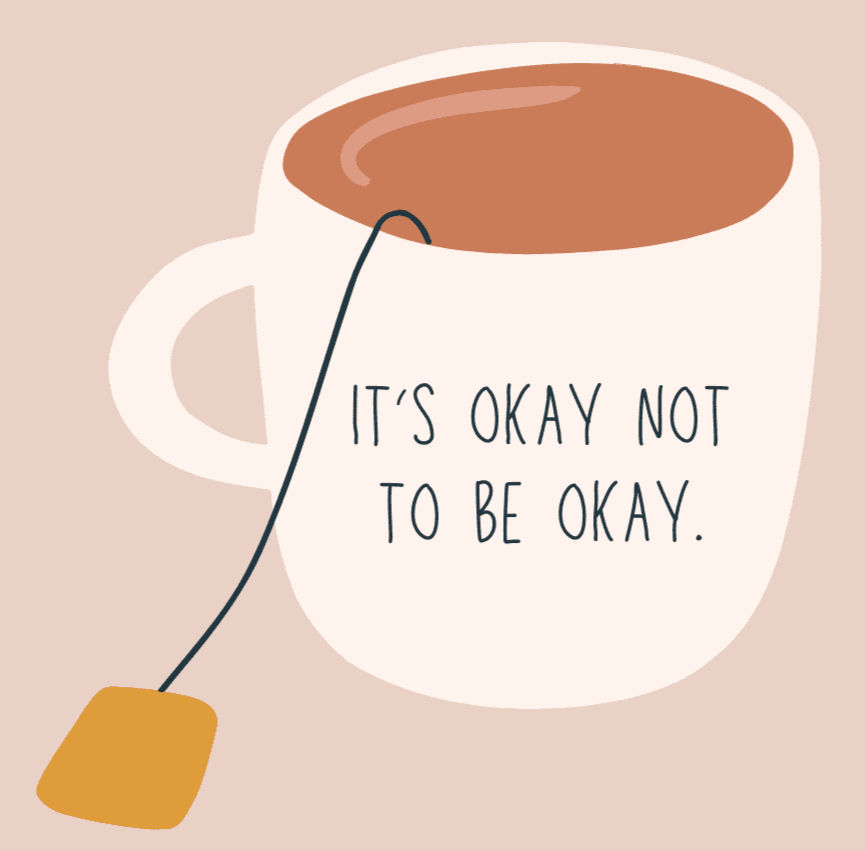
Whenever I am going through a really rough patch. Having someone tell me that they are here for me no matter what and that everything is going to be okay, even if I can't see that at the moment, is extremely uplifting and can bring me out of a funk.
Always always remember that there are services out there that are available 24/7. Suicide can be prevented. It hurts my soul to think of all the things I would have missed had I gone through with ending my life when I felt I had no other choice. I have met some truly wonderful people, experienced so many beautiful and exciting things, and grown so much. I am thankful that we have the services that we do in our country, such as suicide hotlines both through calling and texting, mental health clinics and counselors, therapists, and medications that can balance us out when we need the extra help.

Sometimes the burdens of life can feel too heavy to carry. But I promise you that it may feel heavy right now, but you have no idea what the future holds. Please keep hanging on. Fight for life and all the future experiences that you have not had the pleasure of experiencing yet. And even if you do not understand why that burden is so heavy for someone else, please remember to approach them with a kind heart and know that although the problem does not seem like a problem to you, that doesn't mean it isn't a problem for someone else.
Let that person know that you love them and are there for them. If they do express that they are not okay, supply them with the following information:
National Suicide Prevention Lifeline: Call 800-273-8255
Disaster Distress Helpline: Call 800-985-5990 or Text TalkWithUs to 66746
Crisis Textline: Text TALK to 741741
Suicide and Crisis Lifeline: Call 988, Text 988, or chat on their website: https://988lifeline.org/?utm_source=google&utm_medium=web&utm_campaign=onebox
Those are just a few options. There are so many options out there. Remind them that they are not alone and that everything will be okay. And if you are the one who is experiencing depression, never forget that those are options for you, too. I have utilized both the text and call versions of those lifelines at various times, and they did contribute to saving my life. They are always available to you. And know my readers, that I am always here for any of you. You are never alone! Things will get better. Please take care of yourselves. And if you are looking for a less invasive way, without mentioning that you are concerned about someone. Just simply send them a message and say that you haven't heard from them in a while and that you are always here for them, and set up a time to meet and catch up. Just knowing someone cares could change someone's entire perspective and save their life.

Please, as always, treat others with kindness. You never know what someone is going through. Thank you for reading. I hope this helps someone out there who is dealing with a loved one with depression or someone with depression. I love you all and appreciate your continued support!!
Jacasa Currie
Blooming Thoughts Blog



